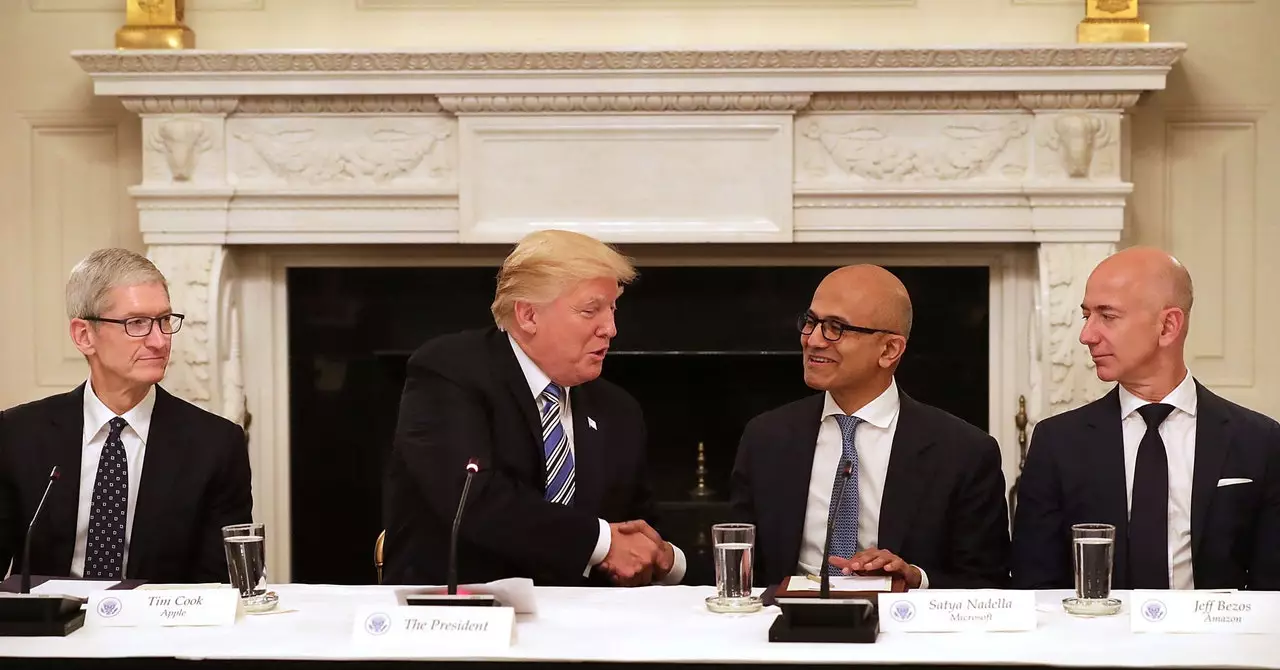In a recent rally that swayed the sentiments of many, former President Donald Trump ignited an eruption of applause with a bold pledge to dismiss Gary Gensler, the current chair of the Securities and Exchange Commission (SEC). Gensler’s tenure has been characterized by a barrage of legal actions against cryptocurrency firms amidst the Biden administration’s regulatory environment, leaving many within the crypto community disillusioned. Trump’s potential move to remove Gensler is not merely a personal vendetta; it represents a broader commitment to the de-regulation of the burgeoning cryptocurrency market, aiming to restore the industry’s confidence and innovation.
Trump’s choice to spotlight Gensler underscores his intent to upend existing financial regulations that many critics argue stifle entrepreneurial endeavors within the crypto sector. This rhetorical positioning resonates strongly with a base advocating for less government intrusion and more robust freedoms for digital asset trading. As crypto legislation evolves, the implications of Gensler’s ousting could pave the way for an industry reinvigorated by renewed opportunities.
In tandem with the outcry against Gensler, Trump also pledged to commute the sentence of Ross Ulbricht, the architect behind Silk Road, an infamous online marketplace that revolutionized both the drug trade and cryptocurrency transactions. Currently serving life imprisonment, Ulbricht’s harsh sentence has drawn accusations of severity and injustice from the cryptocurrency community. Advocates argue that his role in enabling Bitcoin transactions should be viewed through a lens that acknowledges the evolution of digital currencies, emphasizing a distinction between his intentions and the often illicit uses of the platform he created.
Ulbricht’s case not only embodies the duality of innovation and ethics but also highlights a shifting perspective on justice as it pertains to technological advancement. While his actions are undeniably entangled with criminality, many argue for mercy, presenting Ulbricht as a symbol of a bygone era in the fight for internet freedoms. A Trump administration that prioritizes Ulbricht’s release could signal a significant ideological pivot toward broader acceptance of digital currencies and more lenient views on tech-related statutes.
The conversation around regulatory reform would be incomplete without addressing the Federal Trade Commission (FTC) and its chair, Lina Khan. Entering the political arena at just 35 years old, Khan has become a polarizing figure, particularly among certain business circles. As a proponent of rigorous antitrust enforcement, Khan’s aggressive approach against mega-corporations such as Google, Meta, Amazon, and Microsoft has drawn both ire and support. Key influencers like LinkedIn co-founder Reid Hoffman and tech visionaries like Elon Musk have expressed their intentions to see her position reassessed.
Khan’s presence in the FTC has ignited calls for a reconsideration of how corporate power is regulated—a move some have labeled necessary while others have disparaged as excessively punitive. Trump’s remarks suggest an inclination towards dismantling the current FTC leadership, presenting the possibility of a paradigm shift in regulatory strategy. Such a transition might facilitate what many analysts perceive as a more favorable climate for tech companies, potentially encouraging mergers and acquisitions previously stalled by Khan’s policy framework.
A Potential Compromise within Antitrust Tactics
While speculation abounds regarding the fate of antitrust litigation under a Trump administration, it is unlikely that such cases would be entirely abandoned. Current complaints and investigations initiated during his previous term will likely continue, though they may be reframed to negotiate more favorable conditions for tech giants regarding speech and content concerns. This approach could leverage existing antitrust concerns to coax concessions from these companies—angled towards addressing accusations of censorship and bias while fostering a more collaborative relationship.
As the political discourse continues, the question remains whether Khan would retain her position in a newly minted Trump administration. Her fate may depend largely on the shifting dynamics between regulatory intentions and the mounting pressure initiated by a tech industry eager for less constraint.
The potential return of Trump to the presidency encapsulates a shift towards more relaxed norms within both the cryptocurrency space and big tech regulation. As stakeholders await definitive policy changes, the impacts of these evolving attitudes will resonate across industries, potentially reshaping the regulatory landscape for years to come.

